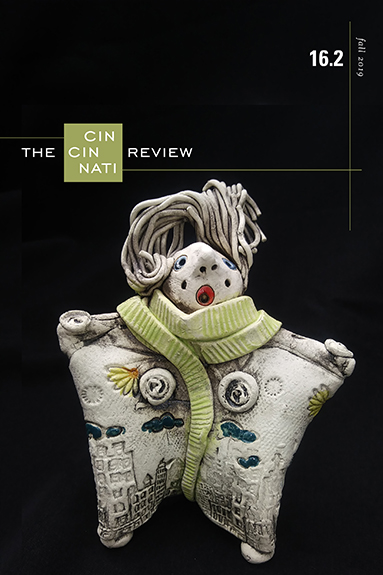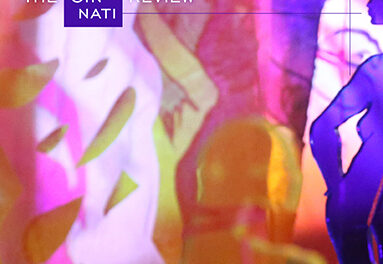At home working on a client’s website
—an archive of Yiddish memories—
I look up in time to see a yellow poplar topple.
Yesterday was Holocaust Remembrance Day.
The hummingbirds have arrived like they do every April,
flitting toward the lower branch of a weeping willow
to the only one of five feeders that remains.
Year after year, even their offspring remember.
The tree falls across a point where a creek branches
into two streams.
With my noise-canceling headphones on, all is silent
as the eight-story poplar crashes in the morning light,
branches at first quaking, then slowing to stock-still.
*
My husband cuts a cross section of the poplar’s trunk.
“Look, twenty years ago there was a fire. And that year there,
a drought.” He points to the tree’s rings,
as if memories had been written on each circle. I remember
the grade-school lesson: If a tree falls, yet no one hears it,
did it make a sound? Yesterday I heard
a lie: Less than two million Jews were lost during the Holocaust.
I also heard a truth: The first American air strike
against Americans was in 1921, a thirty-five-block area
attacked and bombed, a black neighborhood in Tulsa. It’s missing
from our history books. Fewer and fewer of us remember
fewer and fewer people that were killed.
The waves of our collective memory ripple outward,
slowly fading until we are left undisturbed,
like the moss-covered water of a fetid pond.
If six million people were killed in a genocide,
if people were bombed by citizens of their own country,
yet no one remembers, did it happen?
The teacher says, “There is no such thing
as sound. It’s only compressed air. It’s only
if the air waves encounter an ear”—
I hear my mother singing, even though she’s not here.
See more poems from Issue 16.2 by purchasing a copy in our online store. Digital copies only $5.









